I’ve often mammered here about the effect of pain pills on me. Recently I’ve taken the one with an opium derivative in it and two APC’s. The caffeine in the latter may help me. The two drugs together allow me to act. I have always found this extremely weird. The most interesting thing about it (for me), though, is how always it reveals two of my many ways of knowing things to me. Various portions of what I call my reducticeptual awareness tell me that all these pills do is give me a little extra stimulator-chemicals, or precursors to those–more dopamine, perhaps. Or less whatever chemical in my brain is inhibiting me. Simple neurophysiology.
The rest of my awarenesses will never understand this. How can my brain be so helpless? How can it sit in my head or do whatever it does wherever it is in me or near me and perceive me at my keyboard unable to type a single simple word that will get me going into a blog entry like this–until, ZING, Mr. Happy Pill and his wife come aboard and say, “Let the dolt type.”
Don’t tell me about placebos. I don’t seem suggestible. Marijuana never worked on me, for instance. Nor chiropractry. I wanted both to. Ditto valium that a doctor once gave me for the dead-headedness I’ve experienced on and off for forty years. Certain remedies for allergies failed while others worked, at least for a time.
Ah, but I have been suggestible. A few days after I was diagnosed with prostate cancer, my arms started to ache and became weak; I couldn’t lift them above my head. My gp at the time, Dr. Hollinger, checked me out and told me he though I was experiencing an anxiety attack. My symptoms almost immediately disappeared. I didn’t bother getting the tranquilizer he prescribed for me.
Still, it was ultimately neurophysiological. My brain-cells were frantically trying to make new connections to deal with the extreme blow to my self-esteem getting cancer had given me, not to mention the fear of death it got started in me. It broke down. I haven’t studied medicine enough to know the details of what happened, but I don’t think my layman’s guess that the brain shifted too much attention from the normal working of my body, particularly in this case my arms, to dealing with the cancer crisis. So my fundaceptual awareness wasn’t getting enough data to run my arms right. More important, my execuceptual awareness didn’t have the energy to make my arms move properly–lift when necessary, for example.
All kinds of distress would occur when they didn’t lift when they normally would, automatically. Ergo, anxiety and further breakdowns. Whereupon, my analytical intelligence multiplied the bad effect hugely by telling me I was going to drop dead. After all, prostate cancer plus the beginnings of paraplegia.
The simple reassurance my doctor gave me cancelled the anxiety. I suspect that the relief I felt to hear the cancer hadn’t spread to my armpits, or whatever I feared, upped my endorphins as much as the pills I’m now taking do. And the good effect held long enough form my brain to work out an effective way to deal with my changed circumstances.
I took aspirins fairly regularly for headaches, some awfully bad, I thought, between the ages of eight and twelve. The stress of dealing with people, I’m sure, was at the bottom of it. Going to school, going to choir practice, things like that. I don’t remember getting headaches during summer vacations when there was no school or choir practice.
As I’ve written before, I spontaneously gave up headaches one day in the seventh grade when I vividly remember going down the stairs in the school and knowing that I was over my need for aspirins. I remember nothing else. Perhaps I had a headache and I’d suddenly told it to go away and it did. Or maybe I just realized I hadn’t had a headache for quite a while. Maybe I’d just experienced something that ordinarily would have given me a headache and it didn’t (although I had no cognitive theory as to why I had them, so could only have guessed I’d had an experience that should have given me one intuitively). Anyway, I only had headaches a few times a year from then on–except when hung-over, as I occassionally was during my early thirties, when I occasionally went bar-hopping.
I forgot something in my pill-propelled paragraphs above: my bad eyes. Too much reading, especially without enough light, and perhaps without exactly the right prescription lenses, probably contributed some to my susceptibility to headaches.
Final musing: that I’ve run out of natural endorphins, or a proper supply of them, due to how much I did use them over the years, often going close to genuine mania as a creative artist and thinker. I keep thinking I shouldn’t use them now, I should let my endocrine system rebuild itself, without pharmaceutical interference. But it might take too much time. There’s also the fact that my thyroid gland doesn’t work the way it should anymore (which may well be due to my having been hyperthyroidal most of my life, which was responsible for what I like to think of as my genius, until the overwork the poor gland was doing finally caused it to have a breakdown).
Okay. It’s six in the evening at this point. I more or less did my duty as a physical therapy patient. A forty-minute session at the center I go to. The bike ride to and from. A third of my home exercises–but I need only do half of them when I go to the center. I should have done more but I was too worn out to. I didn’t take the pills till a couple of hours ago.
I took care of one email this morning. I got one or two more Small Press Review columns posted in the Pages section here. (I have to boast, by the way, that I now have 82 columns there. Four years more of them to go. I feel proud of them–and did so even pilllessly. They’re nothing compared with what I might have done–and have occasionally done here and elsewhere–but I continue not to understand, acognitively since my intellect understands, in what way they are inferior to the literary commentary of those getting national attention).
New subject, because of the remarks I’ve made above concerning my True Value to World-Culture. As I may have said, now that I’m seventy, I’ve decided to be fully honest. I believe one of the things that has me on the margins is lack of social aggressiveness. I believe it’s what kept me from playing varsity basketball in high school, too.
Long story. Maybe I should save it till tomorrow. I have more pills.



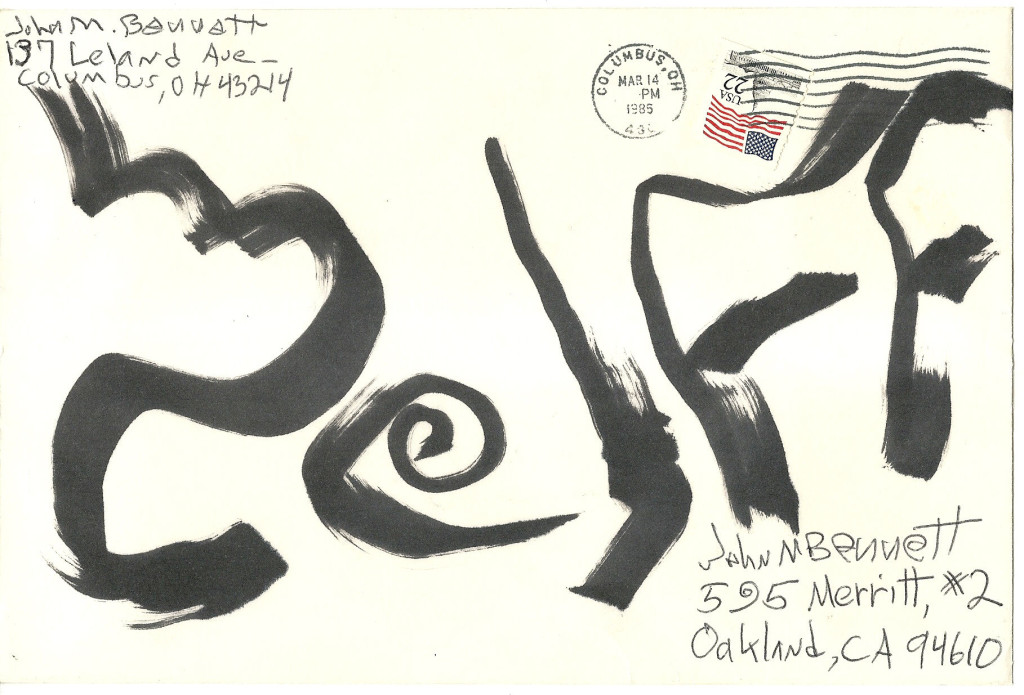
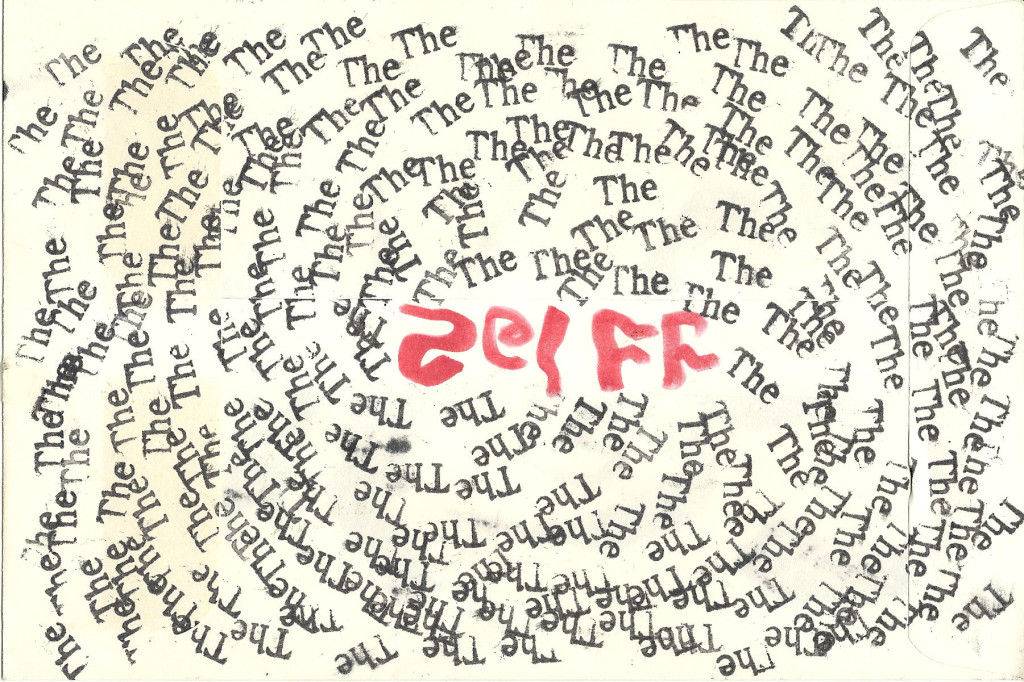
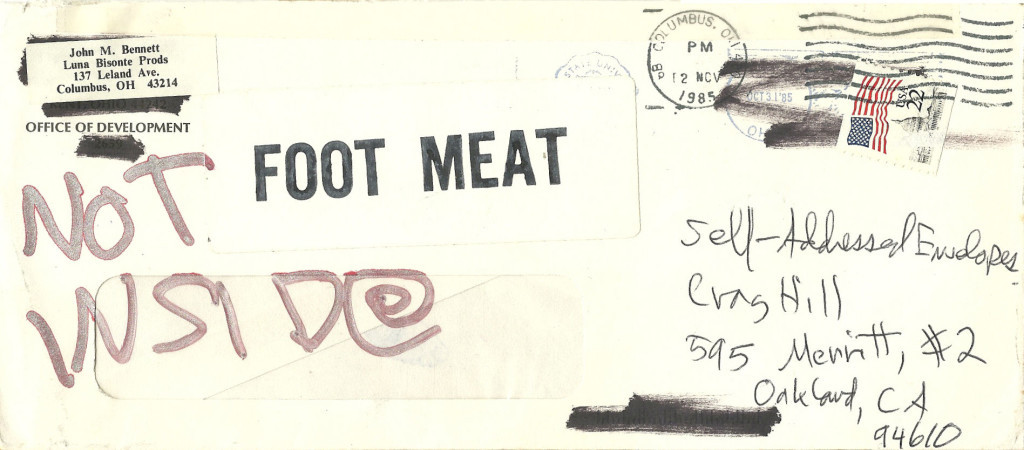
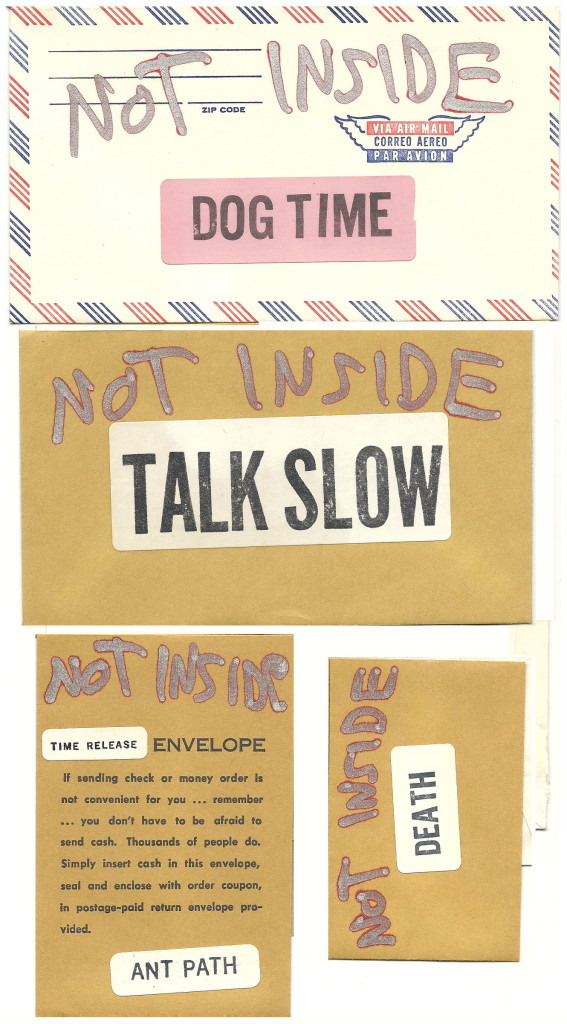



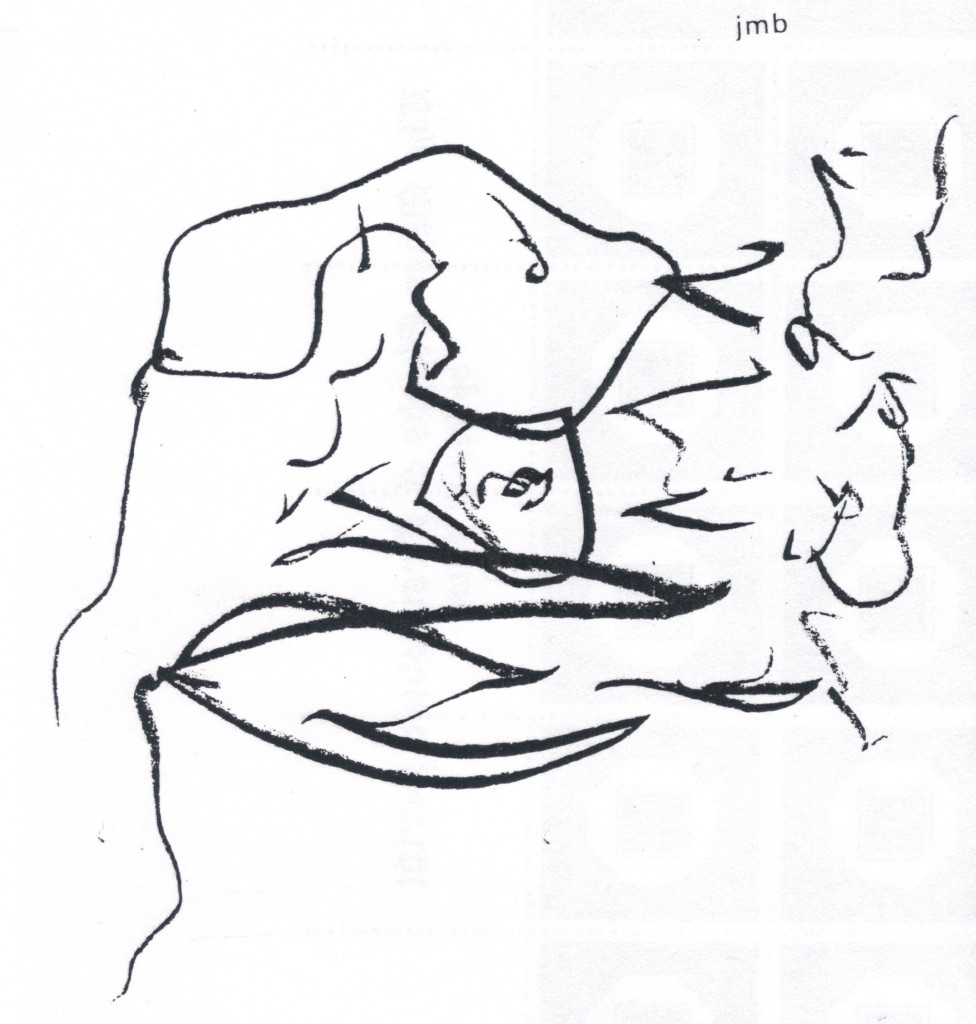

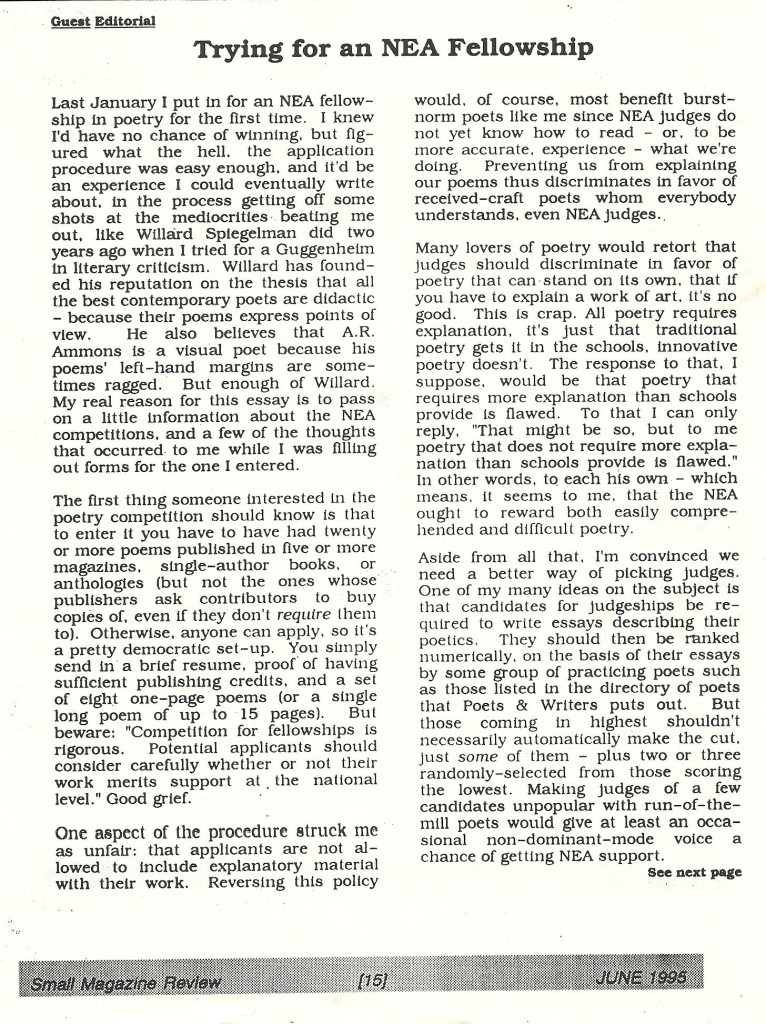
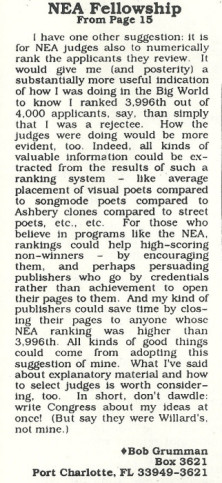
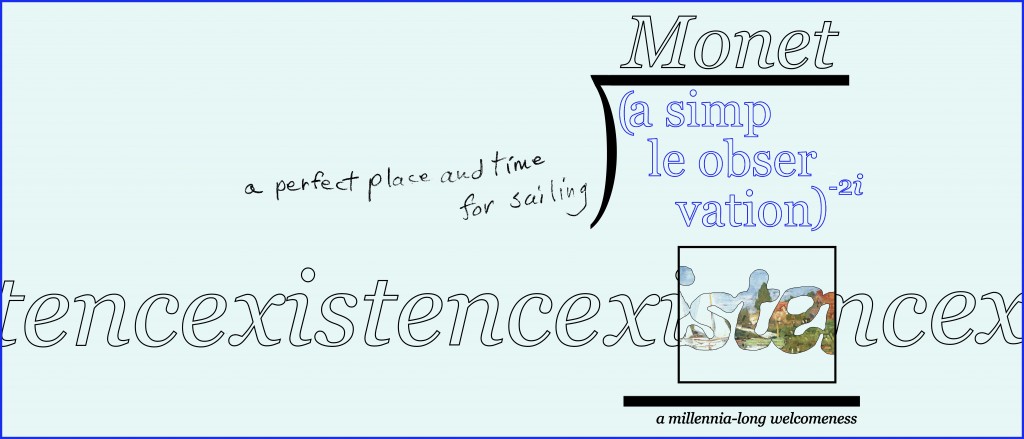
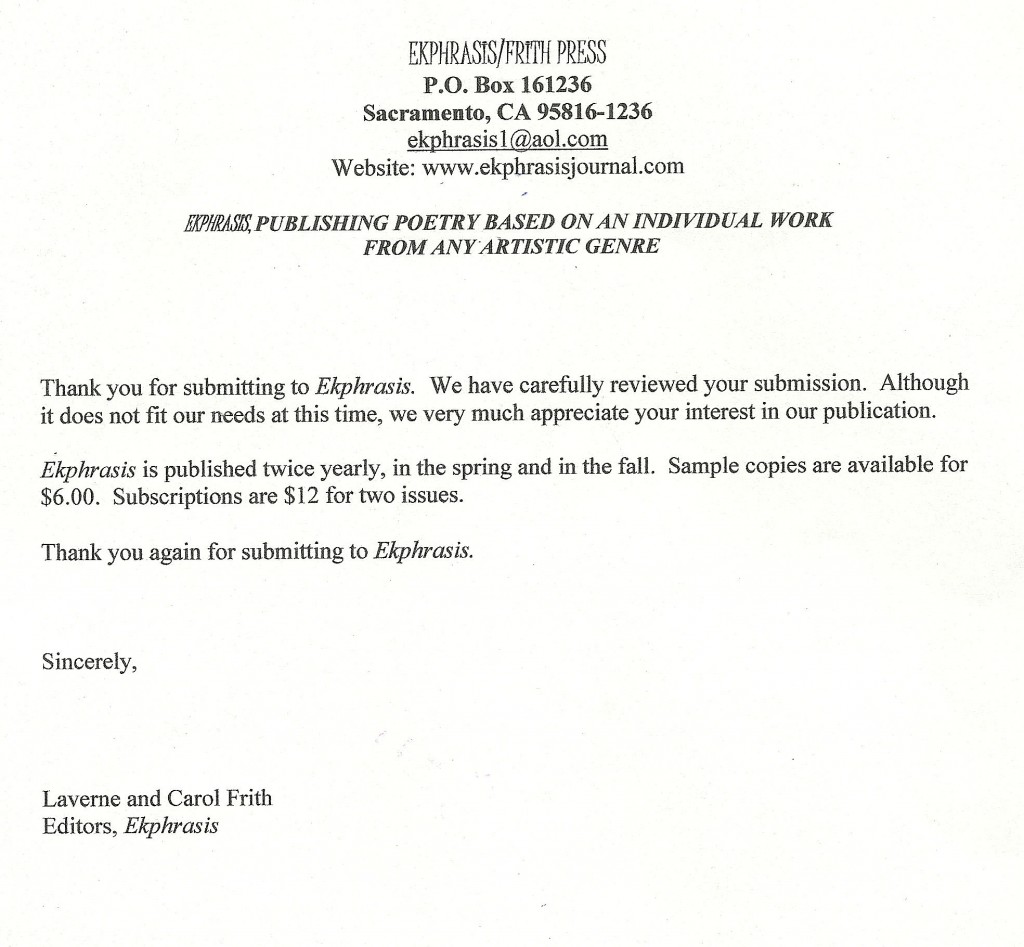 .
.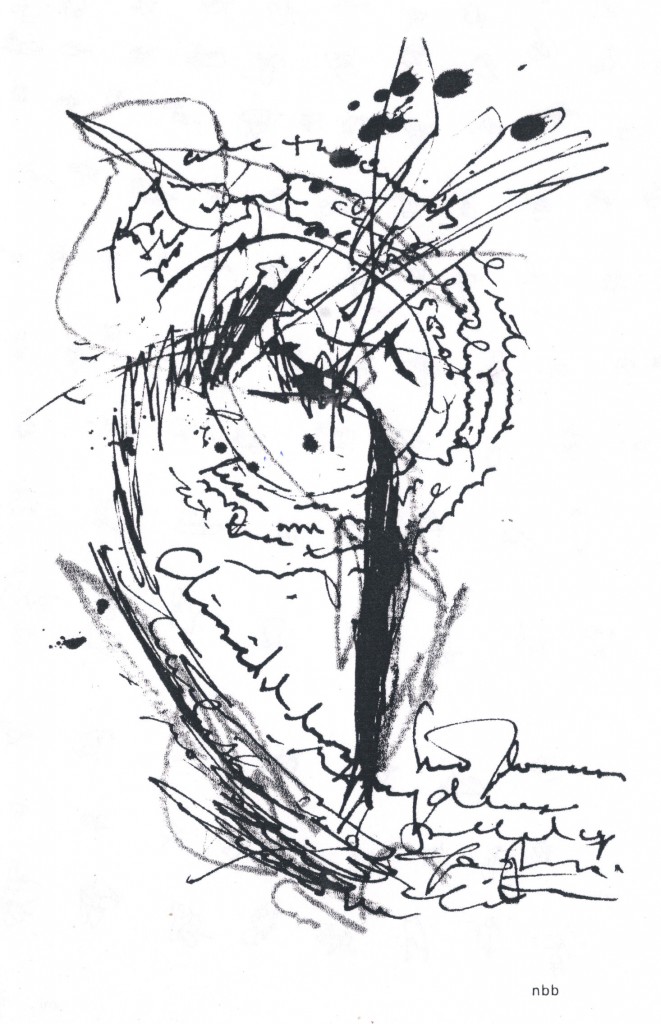

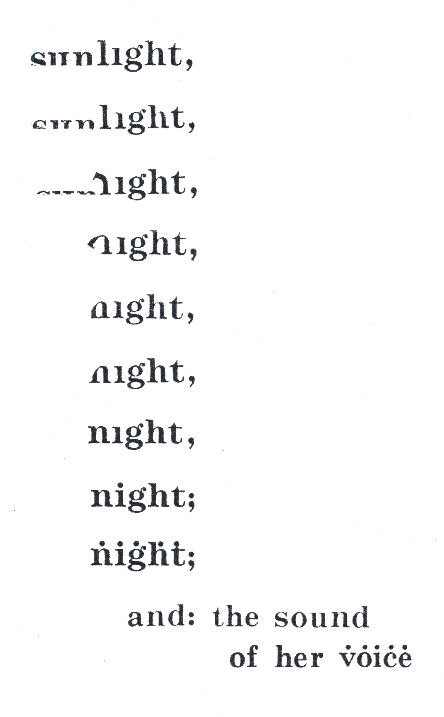


Good news. Congratulations, Bob!